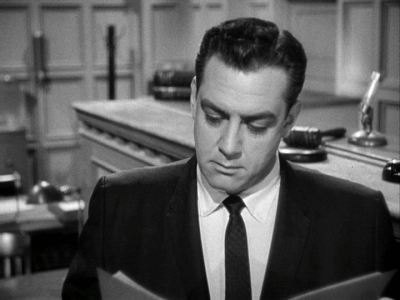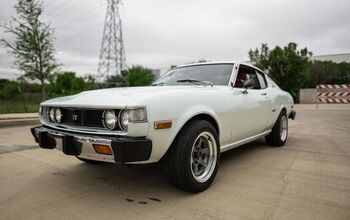The Insider's Guide to Electronic Speed Enforcement Pt. 6: Do NOT Defend Yourself In Court
OK, you got a speeding ticket. You didn’t ignore it (right answer). You didn’t pay it and take the hit to you insurance premium (also the right answer). You decided to go to court. If you were offered lowered points and fine by the court, you turned it down (potentially the wrong answer). In the penultimate part of our guide, I’m going to show you how a speeder who defends himself has a fool for a client.
The officer who wrote you up will state his name and be sworn in. The policeman will say he was working a certain shift in a given marked/unmarked patrol car. The car was equipped with a fully-functional [insert gadget name here] designed to time vehicular speed. At 10 am on Rt. 66 he saw a purple Porsche on a two-lane road, with a yellow divider. He visually estimated the speed to be 100 mph, plus or minus X mph.
[NB: a police officer’s visual speed estimate is legally admissible evidence. In The Empire State, the cop’s guesstimate/word is sufficient to uphold conviction. Most courts want a gadget reading for confirmation, purely as a practical matter.]
The officer will tell the court that he activated his speed timing device, which gave him a reading of 97 mph. Without losing sight of the vehicle, he then pulled out and pursued the perp (you). He pulled the car over at a certain location. He identified the driver by his State Photo ID. The officer will then relay whatever you said during the stop (the “do you know why I stopped you” question).
He will then state the location of the signs posting the legal speed limit, unless you have violated a state maximum (55mph in my New York patch). He will state his training, and reveal when it was last refreshed.
The cop will also tell the court how he set up his radar or laser, or produce a certificate of calibration for a speedometer (if paced). He’ll testify about tuning forks (radar) or internal self-tests (laser). Then, testifying that he was “satisfied that device X was performing according to manufacturers’ specifications,” he will close his case.
And now, it’s time for your cross-examination.
Most pro se defendants don’t channel Perry Mason, or even Denny Crane from Boston Legal. Instead, they launch into their “story:” a narrative account interspersed with “radar/laser sucks” information gleaned from the internet. When the Judge corrects them– “questions only, please,” they’re left feeling frustrated, flapping on the deck like a dying cod.
After a few easily parried questions to the cop– “no sir, there were no other cars in my radar” and “yes, you were the only purple Porsche on the road”– they’re sunk.
Some defendants bring anti-radar/laser articles or papers to support their contention that the cop’s equipment and/or observations were inherently unreliable. These pieces of paper are routinely denied as not conforming to the “rules of evidence” (a full law school course), leaving the defendant flustered in their inability to land one of his or her cross examination “punches.”
In fact, the cop need only testify to the “direct case.” They will not give you the obvious leads you need to do a “wrong car” or “improperly setup radar” theory like you read on the internet. If the cop holds to the Direct Radar Case, for most straight speed cases, the result will be conviction. In New York City, for example, the Direct Radar Case is literally a “cookie cutter” dissertation which may or may not resemble your traffic stop.
The motorist is then convicted of the offense. I repeat, in the vast majority of speeding cases, motorists who defends themselves in court are convicted as a matter of course. It doesn’t matter how smart of savvy you are. You’re toast. Next case…
Many defendants feel extremely aggrieved by the process, and offended by the result. Unable to tell their side of the story, they conclude that the Judge was rude, insensitive and/or arrogant– even though the Judge was going by the Law, following the rules of evidence.
The motorist then pays the Clerk, complains to the Clerk about the Judge (usually her boss), and goes forth fuming– especially if he or she refused to plead to the “deal” offered two hours ago.
In the next and final installment of this series, I will make my case that anyone who wishes to fight a speeding ticket should hire a local attorney with a good track record and relevant experience. Yes, I know what you’re thinking: he would say that, wouldn’t he? If you choose to ignore a writer who’s seen literally thousands of speeding cases, that’s your prerogative.
But for now, my advice to [alleged] speeders is simple. Fight the ticket in every case. Take whatever deal you can get and/or hire an attorney. Period.
More by Casey W. Raskob
Latest Car Reviews
Read moreLatest Product Reviews
Read moreRecent Comments
- Irvingklaws Anymore seems I want a color that is not black, white, red, or some shade of silver/gray. Though I coveted them when I was younger, I also seem to have developed an aversion to all-black interiors. I have a deep negative reaction to any vehicle identifying as "triple black". Don't even get me started on black wheels...I'm not the only one. We're looking to replace my wife's silver CX-5 and one of her few non-negotiable prerequisites is that it be "a color" not in the aforementioned list. It's looking like a Cascade Green Forester with a light gray interior is in her future.
- Bd2 I dig it, Pure Pazaak!
- 3-On-The-Tree My C6 is all blacked out, the rims are matte black and interior all black with no contrast. I was never a fan of chrome rims and lots shiny chrome/silver trim etc.
- JMII Here are all the colors I've owned in order: tan, red, black, red, yellow, green, green, black, blue, silver, white, orange, red, blue and blue.So yeah I love colors...
- MRF 95 T-Bird A number of classic colors ought to be revived and would look great on most vehicles. Mercedes Benz tobacco brown has a deep rich look. Same with GM Honduras maroon. A number of the pale subdued yellows which were popular still hold up well.


































Comments
Join the conversation
One final note for those comparing attorney fees vs. ticket and higher insurance costs. For most folks, every day you miss work trying to fight the ticket in court costs money, as well. It actually cost me more in lost wages than the ticket I was contesting (and we still lost). Remember to factor that in with the court/attorney costs. Best advice is to avoid ever getting a ticket in the first place (hint: situational awareness and a good detector).
A traffic attorney is a great way to defend yourself in court if you receive a speeding ticket